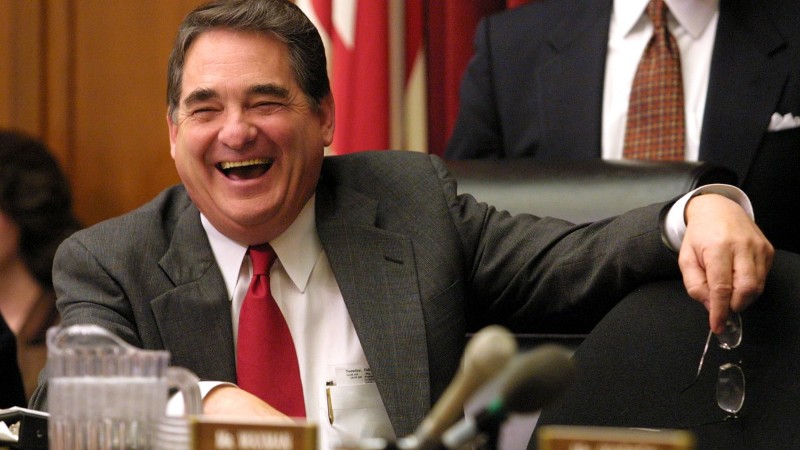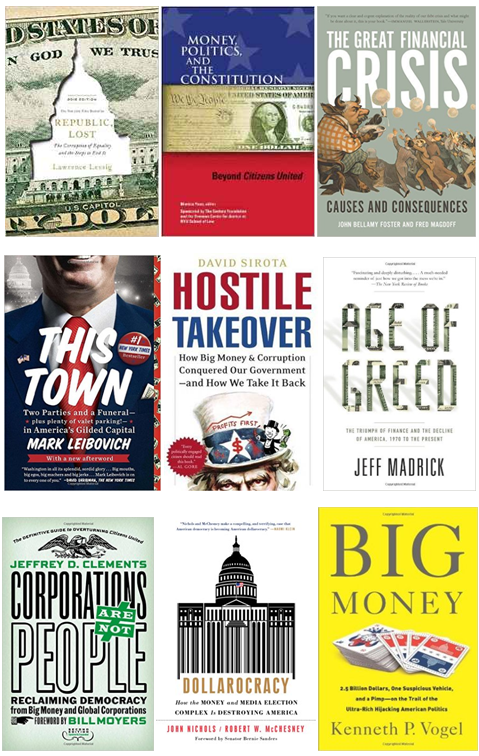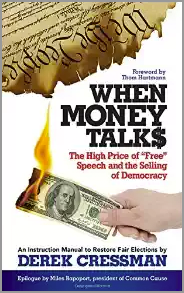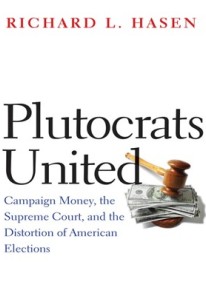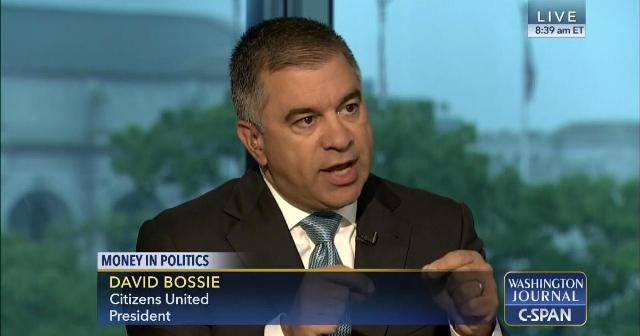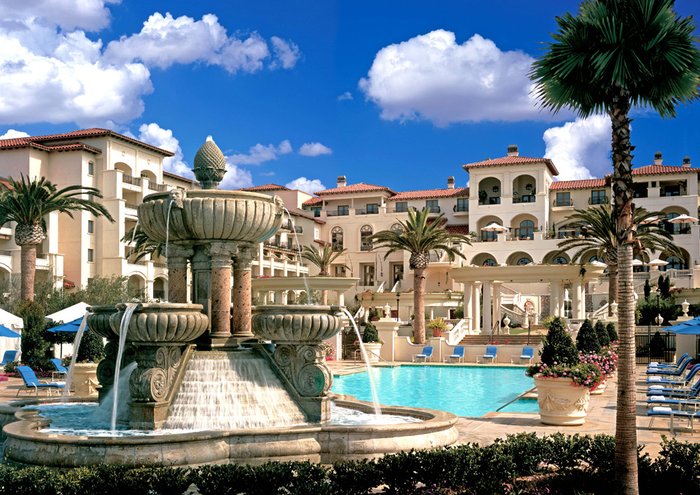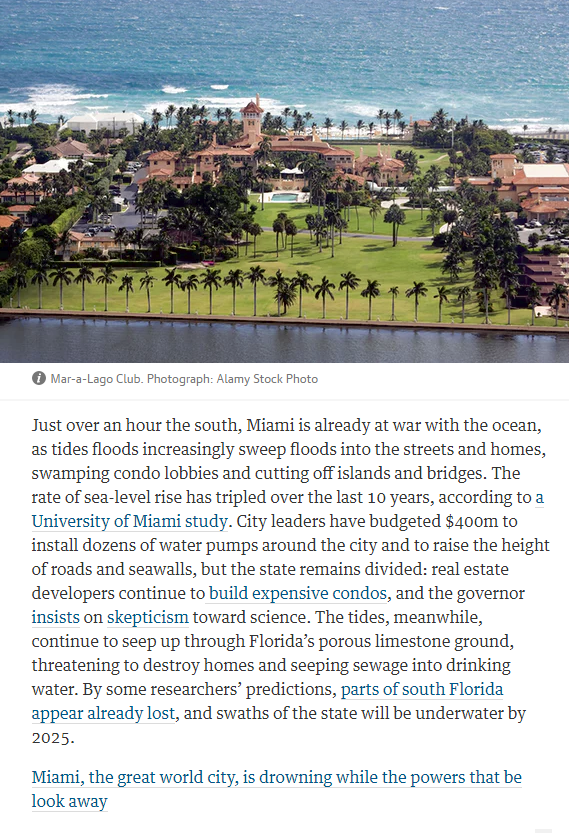Money in Politics: Difference between revisions
Siterunner (talk | contribs) No edit summary |
Siterunner (talk | contribs) No edit summary |
||
| Line 91: | Line 91: | ||
<big>'''Fossil Fuel Money'''</big> | <big>'''Fossil Fuel Money'''</big> | ||
"Apparently, impending catastrophe doesn't mean much to some of the United States' wealthiest people. Once again a report has arisen documenting how fossil fuel millionaires pumped more than $100 million into Republican presidential super PACs last year. That means that $1 out of every $3 donated to Republican candidates coming from hyper-rich individuals came from people who made their fortunes from fossil fuels. In boosting GOP politicians, these funders were simply acting to protect their cash cows from those of us who happen to give a damn about the planet. | ''"Apparently, impending catastrophe doesn't mean much to some of the United States' wealthiest people. Once again a report has arisen documenting how fossil fuel millionaires pumped more than $100 million into Republican presidential super PACs last year. That means that $1 out of every $3 donated to Republican candidates coming from hyper-rich individuals came from people who made their fortunes from fossil fuels. In boosting GOP politicians, these funders were simply acting to protect their cash cows from those of us who happen to give a damn about the planet.'' | ||
"A recent report by the Center for American Progress Action Fund shows that more than six out of every 10 Americans are represented by someone in Congress who denies the reality of ACD. According to the report, 59 percent of the Republican House caucus and an amazing 70 percent of the Republicans in the Senate deny ACD is real. The report also reveals that, according to the US Census, 202,803,591 Americans are represented by an ACD denier." | ''"A recent report by the Center for American Progress Action Fund shows that more than six out of every 10 Americans are represented by someone in Congress who denies the reality of ACD. According to the report, 59 percent of the Republican House caucus and an amazing 70 percent of the Republicans in the Senate deny ACD is real. The report also reveals that, according to the US Census, 202,803,591 Americans are represented by an ACD denier."'' | ||
Revision as of 17:02, 7 October 2018
The U.S. Supreme Court Opens the Doors to Political Influence Buying
Campaign spending limits quashed, Billions of dollars now spent to influence every election cycle
Federal, State & Local political races, "Dark Money", secret contributors, quid pro quo, "pay-to-play", dialing for dollars, lobbying & legislation
"Money is the mother's milk of politics."
-- Jesse Unruh, California
- Buckley v. Valeo / https://en.wikipedia.org/wiki/Buckley_v._Valeo
- Citizens United v. FEC / https://en.wikipedia.org/wiki/Citizens_United_v._FEC
- McCutcheon v. FEC / https://en.wikipedia.org/wiki/McCutcheon_v._FEC
-=-=-=-=-=-=-=-=-=-=--=-=-=-=-=-=-=-=-=-=--=-=-=-=-=-=-=-=-=-=-=-=-=-=-
Americans’ Views on Money in Politics
-=-=-=-=-=-=-=-=-=-=--=-=-=-=-=-=-=-=-=-=--=-=-=-=-=-=-=-=-=-=-=-=-=-=-
Nation on the Take: How Big Money Corrupts Our Democracy
Via Bill Moyers / Money & Politics --- Read an Excerpt from the Book
○
Q&A with Wendell Potter and Nick Penniman -- The System Is Rigged
-=-=-=-=-=-=-=-=-=-=--=-=-=-=-=-=-=-=-=-=--=-=-=-=-=-=-=-=-=-=-=-=-=-=-=-=-
○ ○ ○ ○ ○ ○ ○ ○ ○ ○ ○
When Money Talks
by Derek Chessman
Berrett-Koehler Publishers (January 2016)
ISBN-13: 978-1626565760
ISBN-10: 1626565767
http://www.derekcressman.com/whenmoneytalks
http://billmoyers.com/story/will-america-be-able-to-overturn-citizens-united/
The connection between money and politics in Washington DC and throughout the US is a matter of fact. The extent of lobbying, the power of lobbyists and well-funded (and often secretive) interest groups, Super Pacs and individual billionaires have risen to impact most every substantive policy element of the US government.
Campaign financing is acknowledged as a sine qua non of realistic politics. Candidates are products of campaign 'war chests' and elected officials literally devote most every day to fundraising. Campaign cycles every two and four years approach new political campaign spending records, in the billions at the presidential level.
As a result of quid pro quo politics, a payback system that directly ties money to policy, the public's business and common good of environmental protection are systematically neglected.
"When Money Talks" casts a light on this quotidian reality, the business of political power and the escalating, extensive costs of pay-to-play politics.
According to Derek Chessman, without a serious change in how politics is conducted in the US, the future portends crisis.
It is difficult to argue with this -- that the US democratic system of governing is at a crossroads.
∞ ∞ ∞ ∞ ∞ ∞ ∞ ∞ ∞ ∞ ∞ ∞ ∞ ∞
Fossil Fuel Money
"Apparently, impending catastrophe doesn't mean much to some of the United States' wealthiest people. Once again a report has arisen documenting how fossil fuel millionaires pumped more than $100 million into Republican presidential super PACs last year. That means that $1 out of every $3 donated to Republican candidates coming from hyper-rich individuals came from people who made their fortunes from fossil fuels. In boosting GOP politicians, these funders were simply acting to protect their cash cows from those of us who happen to give a damn about the planet.
"A recent report by the Center for American Progress Action Fund shows that more than six out of every 10 Americans are represented by someone in Congress who denies the reality of ACD. According to the report, 59 percent of the Republican House caucus and an amazing 70 percent of the Republicans in the Senate deny ACD is real. The report also reveals that, according to the US Census, 202,803,591 Americans are represented by an ACD denier."
○ ○ ○ ○ ○ ○ ○ ○ ○
A Flood of Money in Politics:
The dominance of influence of big money in U.S. politics is becoming an issue-of-issues, how a handful of ultra-rich political players can change American politics, policies, and ultimate outcomes. Media coverage of the issue is increasing and is sharply drawn across the political spectrum. Two recent books stand out covering the 'dark' and billion-dollar plus 21st century money-in-politics arena... Washington DC is awash with dollars lobbying, drafting legislation, writing and rewriting 'mark-ups', setting agendas, and shaping campaigns. Every state has targeted legislative initiatives that are coordinated across the nation by monied groups. 'Legislative exchanges' like the "American Legislative Exchange Council" are developing model laws as templates that are funded state-by-state. Voting/districting/apportionment create legislative districts that are the result of well-organized and -funded campaigns. Many of the most high profile political headlines have individual players behind the scenes and spending hundreds of millions in supporting activities.
Think-tanks with agendas, media, educational influence at work -- the modern money game has powerful interests that act to shape U.S. politics, domestic and foreign. The unprecedented power of the U.S. military, from 800 overseas bases and nuclear arsenal, to dealing with interests at home with wealth, inequality, poverty and infrastructure all have at core the influence of dark money and big money.
○ ○ ○ ○ ○ ○ ○ ○ ○
Dark Money
- The Hidden History of the Billionaires Behind the Rise of the Radical Right
By Jane Mayer
Publisher: Doubleday (January 19, 2016)
ISBN-10: 0385535597
ISBN-13: 978-0385535595
Dark Money / NYT - January 2016]
What Happened to Jane Mayer When She Wrote About the Koch Brothers / NYT - January 2016
Dark Money is “Revelatory. . .persuasive, timely and necessary. . . . [O]nly the most thoroughly documented, compendious account could do justice to the Kochs’ bizarre and Byzantine family history and the scale and scope of their influence.”
: — The New York Times
[D]eeply researched and studded with detail. . .it seems destined to rattle the Koch executive offices in Wichita as other investigations have not. [Dark Money] could inspire a more intense discussion about the impact of this wealthy conservative cadre on the Republican Party and the recent course of American politics.” : — Washington Post
“[B]ombshells explode in the pages of Dark Money, Jane Mayer’s indispensible new history . . . .combines her own research with the work of scores of other investigators, to describe how the Kochs and fellow billionaires like Richard Scaife have spent hundreds of millions to ‘move their political ideas from the fringe to the center of American political life.’”
- — The Guardian
“A careful exposé. . . . Mayer closely documents her charges. . .while delivering a swiftly flowing narrative. . . . A valuable contribution to the study of modern electoral politics in an age that Theodore White, and perhaps even Hunter S. Thompson, would not recognize.”
- — Kirkus
○ ○ ○ ○ ○ ○ ○ ○ ○
Big Money:
- 2.5 Billion Dollars, One Suspicious Vehicle, and a Pimp—on the Trail of the Ultra-Rich Hijacking American Politics
by Kenneth Vogel
PublicAffairs (June 2014)
ISBN-10: 1610393384
ISBN-13: 978-1610393386
From Editorial Reviews
James Kwak, New York Times Book Review
- “What Vogel gives us is a detailed look at this new political landscape, where voracious money-sucking beasts mingle with megadonors hungry for behind-the-scenes access…Whether we are witnessing is a tectonic shift or a gradual evolution, ‘Big Money’ amply and colorfully makes the case that our elected leaders are increasingly dependent on a small number of seven-digit checks written by a few dozen members of the 0.01 percent, and therefore politics are becoming a type of thoroughbred horse racing.”
Barton Swaim, Wall Street Journal
- “With ‘Big Money’—-which takes up the Kochs and other rich political contributors, including Sheldon Adelson, Rob McKay and liberal Texas lawyers Steve and Amber Mostyn—-Mr. Vogel has succeeded in doing what I, for one, didn't think possible. He has made the subject of money in politics entertaining—indeed, gripping. He does this by a combination of factual analysis, eyebrow-raising scoops and zany stories.”
Michael Levin, Huffington Post
- “Vogel is a master of Politico's deliciously snarky political style and offers us glimpses of our elders and betters at their least dignified. …Vogel's Big Money is a must-read if you are concerned about politics and the future of this country.”
Bethany McLean, Washington Post
- “[Vogel] knows the characters and gets the game. Want to understand Mitt Romney’s fundraising operation, how Jim Messina mobilized big donors for Obama’s 2012 campaign or the war chest that is already growing underneath Hillary Clinton? Vogel tells the stories. He also offers lots of detail on one of the most fascinating frenmities in modern right-wing politics: Karl Rove and the Koch brothers. And he offers great facts to bolster his overall claim...To his great credit, Vogel is also pretty even-handed...This is a book by an insider, for insiders.”
Daniel Ben-Ami, Financial Times
- “Kenneth Vogel, chief investigative reporter for Politico, the news organisation, does an excellent job in untangling this story. Much of the book consists of reportage, with him trying to attend secretive meetings between ultra-wealthy donors and electoral candidates seeking funding. Often he was barred from entering or ejected after being identified as a journalist….He is commendably non-partisan in his reporting. Vogel sketches the shadowy fundraising worlds of both of the main parties. He also reports on the intense factional rivalry that sometimes exists within their respective camps.”
Walter Shapiro, Brennan Center for Justice
- “Vogel's paparazzi tactics -- coupled with relentless traditional reporting -- have made Big Money the smartest and most revealing book chronicling the Super PAC era. Instead of predictable legal analysis and a mind-numbing march of statistics, Vogel tries to grasp what motivates the wealthy to invest so heavily in Super PACs. And his answers do not fit into the neat ideological cubbyholes of either campaign reformers or believers in the nonsensical, but powerful, doctrine that money equals free speech.”
Chris Moody, Yahoo! News
- “Pull[s] back the curtain on some of the most important players... Through impressive sourcing, Vogel’s work...offers a peek into the secretive universe of megadonors in the post-Citizens United era.”
The Economist's Democracy in America blog
- “A highly entertaining account of the adventures of billionaires in politics.”
Joel Connelly, SeattlePI.com
- “Vogel manages to entertain while reporting on the politics of excess, even when things turn sinister… The most fascinating aspect of Vogel’s book is what manner of candidate big money culture produces, with a look back to 2012 and ahead at 2016... Buy Hillary’s book for your coffee table, but take 'Big Money' on vacation.”
Jim Newell, Bookforum
- “Vogel’s decision to adopt a gonzo-style approach allows us to check out our new oligarchic digs as the contractors near completion. Throughout the book, Vogel shares versions of the same first-person story that never seems to lose its alternatingly comedic and terrifying edges: Here’s a closed-door donor conference I snuck into, and here’s what happened when they found me out.”
Politix
- “Big Money is a fascinating, yet often depressing, tale about what—and who—really matter in American elections…Most books about campaign finance are dry tomes detailing the technicalities of political action committees (PACs), hard vs. soft money, and the like. It's enough to make a reader's eyes glaze over after the first chart or regression analysis. Big Money is instead an incisive, at-time hilarious, look at the very rich human beings who now dominate big-time political fundraising…To learn about who is likely to give and why, Kenneth P. Vogel's Big Money is a must-read.”
∞ ∞ ∞ ∞ ∞ ∞ ∞ ∞ ∞ ∞ ∞ ∞ ∞ ∞ ∞ ∞
Rick Hasen
$$$$
Citizens United and the US Supreme Court: Opening the Floodgates
∞ ∞ ∞ ∞ ∞ ∞ ∞ ∞ ∞ ∞ ∞ ∞ ∞ ∞ ∞ ∞ ∞ ∞ ∞ ∞ ∞ ∞ ∞ ∞
2016
Koch World / Return on Investment
In late January 2015, the Kochs had pledged their network would raise and spend $889 million during the 2016 cycle, a number that accounted for both educational and political spending. Yet much had changed for the Kochs in the year since that announcement, and sources say the pace of those changes has only accelerated since...
... Charles Koch provided a window into his own thinking in an interview last month with ABC’s Jonathan Karl. “When you look back over the years, over the last several cycles, hundreds of millions of dollars in electoral politics, what have you gotten for that?” Karl asked. “What’s been the return on that investment?”Investment
Koch: “What have we gotten for it? Well, I think there have been some good things, particularly at the state and local level.” “At the federal level,” he added, shaking his head, “we haven’t in any way changed the trajectory of the country.” Karl suggested it hasn’t been a very good investment. “No, no it hasn’t,” Koch replied. “It’s been disappointing.”
∞
Update / Trump's appointments --- Koch success
·············································································································
Update via The Hill / January 30, 2016 - http://thehill.com/homenews/campaign/267641-koch-network-spent-nearly-400-million-in-2015
INDIAN WELLS, Calif. – The Koch brothers’ donor network spent close to $400 million last year, and is on its way to spending an unprecedented $889 million supporting right-wing politics and causes during the 2016 cycle.
On Saturday afternoon, the Koch network assembled 500 wealthy conservatives — its largest gathering ever — at a luxury resort near the foothills of Palm Springs’ Coachella Valley.
About 150 of the donors are first-time attendees, and the rest are paid-up members of the conservative donor network, which requires a minimum annual membership fee of $100,000...
The Palm Springs retreat is the second time journalists have been allowed to attend.
···································································································
January 2016: From RNader, excerpt from blog essay:
The dominance of influence money by the plutocracy and now big business PACs, such as that of the super-rich Koch brothers, is just the beginning. The monetized minds don’t just rely on their “quid pro quo” checkbooks. They foster gerrymandering electoral districts so that politicians indentured to them pick the voters instead of a legitimate congressional district’s voters picking a candidate. And the debates now are more ratings inventory for Big Media than a discussion of major issues which remain off the table.
Presidential debates are controlled by a Commission on Presidential Debates (CPD) – a private corporation – created by the Republican and Democratic parties and funded by beer, auto, telephone and other corporations whose patronage includes lavish hospitality suites. Thus, through the cover of CPD, the two big parties control the number of debates, who is invited to participate and which reporters ask the questions before an approved audience.
This year, the monetized minds went further. Now a commercial cable or network television company decides the formats and who is in tier one, tier two or not included at all. The Big Media sponsors (Fox, CNN, NBC and others) decided that Mark Everson, who dropped out in November, was the first candidate to go to all of Iowa’s 99 counties, should be excluded from the competition because he does not have a PAC sponsor and hasn’t raised enough money. Yet he is the only Republican presidential candidate with executive branch experience. Under George W. Bush, he was head of the IRS and Deputy Commissioner of the Immigration and Naturalization Service.
Monetizing elections has predictable consequences. The ditto-head reporters, obsessed with tactics and gaffes, never ask about corporate crime, corporate welfare, the American Empire with its un-auditable Defense Department, the over $300 billion a year in computerized billing fraud in the health care industry, or why corporations are given free exploitation of our public property – such as gold and silver mines on public land , the public airwaves and the trillions of dollars of federal research given away to big business in such industries as the drug, aerospace, computer, biotech and information companies...
∞
2015
A Quick Look at the Monarch
The 2015 annual Koch-organized summit is sponsored by Freedom Partners Chamber of Commerce, a non-profit that oversees a network of Koch-backed conservative groups... taken together the Koch groups intend to spend $889 million in the run-up to the 2016 election boosting policies and candidates that adhere to principles like those that animate the Kochs and many of the donors gathered here.
Via Politico by Kenneth Vogel, author of Big Money
∞
Media and Money: Flashbacks and Flashforward
Getting the numbers...
Speaking to his personal relationship with Trump, Zucker acknowledged that, as head of NBC at the time, he was responsible for greenlighting The Apprentice, the reality show that made Trump a TV star. "As a New Yorker, I really understood the appeal of Donald Trump in his ability to create publicity...
Like CBS' Moonves --
Ratings. Clicks. Audience. Say what you will about Trump as a human being or a potential leader of the free world, he has an ineffable ability to get attention. He has called himself a “ratings machine,” and in the world of TV, ratings equal profit.
“It may not be good for America, but it’s damn good for CBS,” Leslie Moonves, chairman of CBS, said of the Trump phenomenon, according to the Hollywood Reporter.
“The money’s rolling in, and this is fun. It’s a terrible thing to say. But bring it on, Donald. Keep going.”
... ratings madness.
- Not far from Mar-a-Lago, the U.S. president elect's Florida income property, the tides are rising in Florida.
- Tentacles-of-money and consequences-of-policy-disasters, via the Miami Herald, here's an octopus in a South Florida parking garage, just south of the president's Mar-a-Lago resort club.
Tentacles and Consequences: A Sign Like a Canary in a Coal Mine
∞

